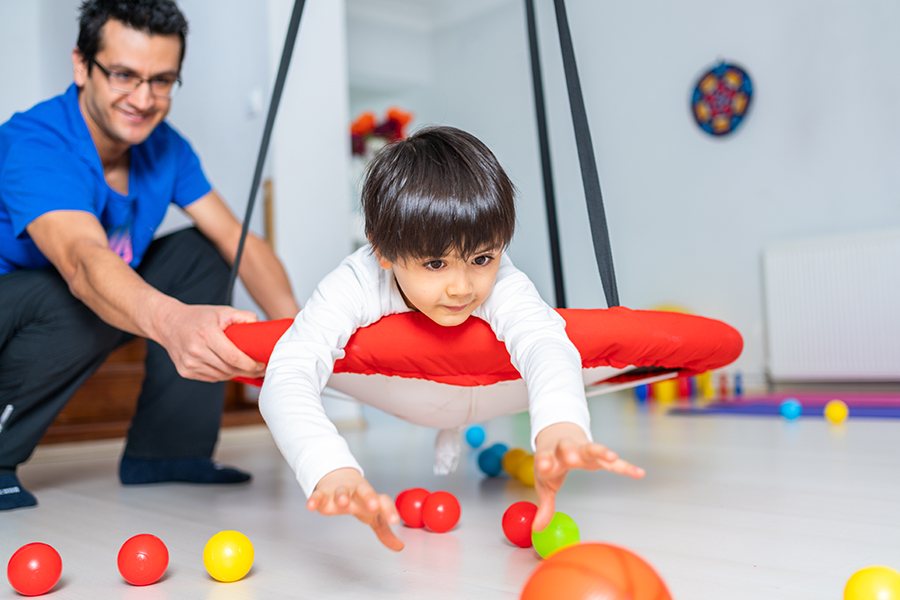Facts: our children are glued to their screens. As parents, we see this, we know this, and at times it’s easier not to fight it. How many times have you asked your teen to put down their phone while you are trying to have a conversation? How many times have you heard, “Just let me send this” or “Just let me respond to this” while your teen maintained a very half-hearted conversation with you? It’s incredibly frustrating as a parent and it’s painful to watch our kids constantly being distracted by notifications that are constantly dinging and popping up on their screens, making it impossible to focus on any one “thing.” What’s happening here?
ADHD-like symptoms
Our children are starting to appear more inattentive, unable to focus for a period longer than 2 minutes. They are having difficulty even starting a simple task such as initiating a shower without stopping to answer this snap or respond to that text. Our kids are using their time very inefficiently, and their ability to follow a day’s routine has declined.
How many of us have watched our children struggle to begin and finish a task because of the constant interruptions from their cell phones? Our kids are struggling to start and finish homework, taking a shower, emptying the dishwasher and many other tasks that require sustained attention to get through. In the minutes it’s taken me to write these thoughts, I have been already interrupted three times by my children and have had to regroup my thoughts and think about the point I was trying to make. Now, take that and multiply it by the constancy of the snapchat, Instagram, and text notifications that our kids are being interrupted by every single time.
The Need for Instant Gratification
The other thing we see is the need for instant gratification. In texting, this includes expecting an instant response from a peer and the disappointment that comes with being that text being “left on read.” I have noticed it in my interactions with my kids who ask a question and don’t give me a chance to respond. They shoot the same question at me again and again, showing an incredible level of impatience and annoying me as well. They feel unheard when a teacher doesn’t respond to their email right away.
The expectation has become that all aspects of life should be as quick as the social media instant-ness. Our children don’t want to work on tasks or even emotional or behavioral challenges because “it’s too hard.” They feel like anything that requires that much effort isn’t worth it. Sadly, this is a byproduct of the immediacy of the social media world. Our kids are showing a low frustration tolerance and can’t handle not being “good” at something on the first try. They are so easily “stressed” when something doesn’t go as (instantly) planned. They struggle to handle the feeling of not doing well or not understanding something on first presentation. This further negatively impacts our children’s ability to develop perseverance and diligence and to “keep going” or “try again” or a “different way” when they don’t receive the outcome they initially wanted.
Interference with Learning
When we are attempting to learn, there are a couple of variables that need to be in place: motivation, attention, and time. Constant attention shifting creates a poor ability to learn new information and transfer it into long-term memory. The consistent distractions by the phone interferes with the learning of information while studying or reading. Our children then need even more time to learn information that can be reviewed a few times and then consolidated into memory. Our kids end up performing poorly on tests and quizzes and struggle to complete homework because their attention may have been compromised during class when they were either texting or checking their phone outside of their teacher’s awareness. Many kids will also leave the class to use the bathroom to send a text or watch a Tik Tok. This further interferes with learning in now they have lost valuable content and may be too embarrassed to ask a teacher to repeat the information out of shame.
How do we help our children put their phones down?
To begin, have a conversation with your child and communicate your expectations for the use of the phone. Although you are likely won’t be believed, assure your child that this is not a form of punishment.
Turn in phones at a specific time
You may want to negotiate this with your child or have a set time in mind when the phone is turned in and kept in your care until the morning. You may also choose to have a “homework hour” where your child can check their phone every hour, in between assignments. Your child can also practice self discipline by placing their phone in the kitchen if they are working on their homework in their room. It will be out of reach and can serve as a moment of pause begore leaving their desk in order to look up something or check snaps.
If your child is truly addicted to the phone and resorts to using their computer to chat, have your child complete his or her homework at the kitchen table or in a space near you in order to create accountability.
Turn off unnecessary notifications
It may be as easy as turning off notifications in your settings. We don’t need to know every time Shein posted a discount. Another option is to silence the phone (no vibrations) so that there is some time to decompress from all of the information that our children are bombarded with on a daily basis. It’s information overload and it’s overwhelming.
Our children are constantly shifting their attention and mental energy all day long, and being bombarded with information that they don’t need to function in school or in their daily routine. Much of the information they are being exposed to maybe truly irrelevant or too much information about politics or current events. The images can be graphic and disturbing to our children who are not developmentally equipped to handle certain realities. Think about when we were children and teens. If we wanted information, we had to buy a magazine, read the newspaper or interact with an adult such as a parent or teacher. Information was not readily available to us and that was good. Talk to your child and create a game plan to help improve attention, learning and overall mental health.
Set an example and reduce your own phone use
Parents of young children pick up their phones more than 70 times a day, according to recent studies. Even more concerning, parents frequently underestimate how often they pick up their phones, or for how long. If your children see you using technology at all hours of the day, they will likely think that this is normal behavior and will feel that they are given a green light to do the same. Set a positive example for your children to follow by being vigilant about your phone use, particularly in their presence. Putting away your phone and not giving into the tempation for a “quick check” allows you to focus on interacting with your children and can help them feel seen, safe, and respected.






















